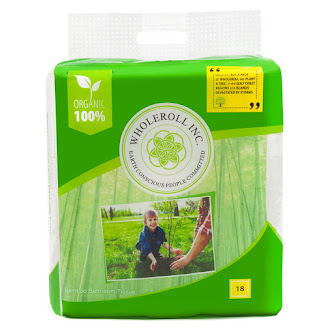Climate change presents a real challenge to human
health through its various impacts. Many people are ignorant of the effect of
climate change on their health. They see it as a thing that affects plants and
the land through drought, flooding, wildfires etc. The impact of climate change
on human health is yet to be fully comprehended by many know the connection is very real. Climate change affects human health by disrupting the environment in which
people live and it creates situations and conditions that affect human health such as asthma related problems, parasites, disasters from weather and such. Here are some examples of health related conditions associated with climate change.
1. Contagious
diseases
Climate change is causing an increase in water borne diseases in two ways. Harsher droughts lead to water scarcity which makes people have to resort to using unsafe
water that is contaminated by disease-causing pathogens. Some places have seen
wetter weather with heavier rainfall causing flooding and in densely populated
areas, flooding becomes a hazard as drinking water is contaminated by dirty
water. This causes outbreaks in contagious diseases like cholera and diarrhea.
Vector-borne diseases like malaria, dengue and Zika
are spreading to areas where they were not common. This has been partly due to the warming weather making it easier for parasites such as mosquitoes to spread, thrive and survive much longer than they would in normal conditions.k
2. Natural
hazards
Climate change has led to more incidences of natural
hazards like floods, wildfires, and droughts. These natural hazards present a
real danger to human health through physical harm. A flood, for example, can literally sweep people and property away. More incidences of wildfires in the US and
Canada have seen more deaths attributed to this natural hazard in the recent
past.
3.
Temperature related risks
Extreme weather has been experienced in North America
and Europe where dangerous heat waves have become more common in summer, and harsh cold
experienced in winter. Heat waves pose a risk of heat stroke and dehydration
putting people working outdoors at a greater risk.
Cold-related deaths have occurred in more vulnerable
people like the elderly and young children in poor families who can’t afford
good insulation and heating.
4. Human
conflict due to water shortages
Climate change has played a role in the diminishing of the world’s most crucial resource which is water. Harsher droughts are making
water lack and conflicts as a result more prevalent in Africa and the Middle East. Human conflict is
a real risk to human health as deaths and injuries happen in a physical
confrontation.
5. Air
quality risks
Climate change has led to poorer quality of air making
raising the risks of respiratory illnesses like asthma and pneumonia. Warmer
weather patterns encourages more pollen growing plants which leads to increased asthma related complications. Ground ozone levels have also
been rising. These gases have the potential to damage lung tissue and cause many other respiratory
complications.
These related health risks that are a result of the climate change war are very serious and will continue to get worse if the earth's temperature does not become more stable or decrease. Globally, many people will be affected. What can you do? We all can be a part of the solution. Decide what you can do today to live a more sustainable lifestyle, because after all it is our responsibility to preserve the earth for the future of the next generation.
These related health risks that are a result of the climate change war are very serious and will continue to get worse if the earth's temperature does not become more stable or decrease. Globally, many people will be affected. What can you do? We all can be a part of the solution. Decide what you can do today to live a more sustainable lifestyle, because after all it is our responsibility to preserve the earth for the future of the next generation.








